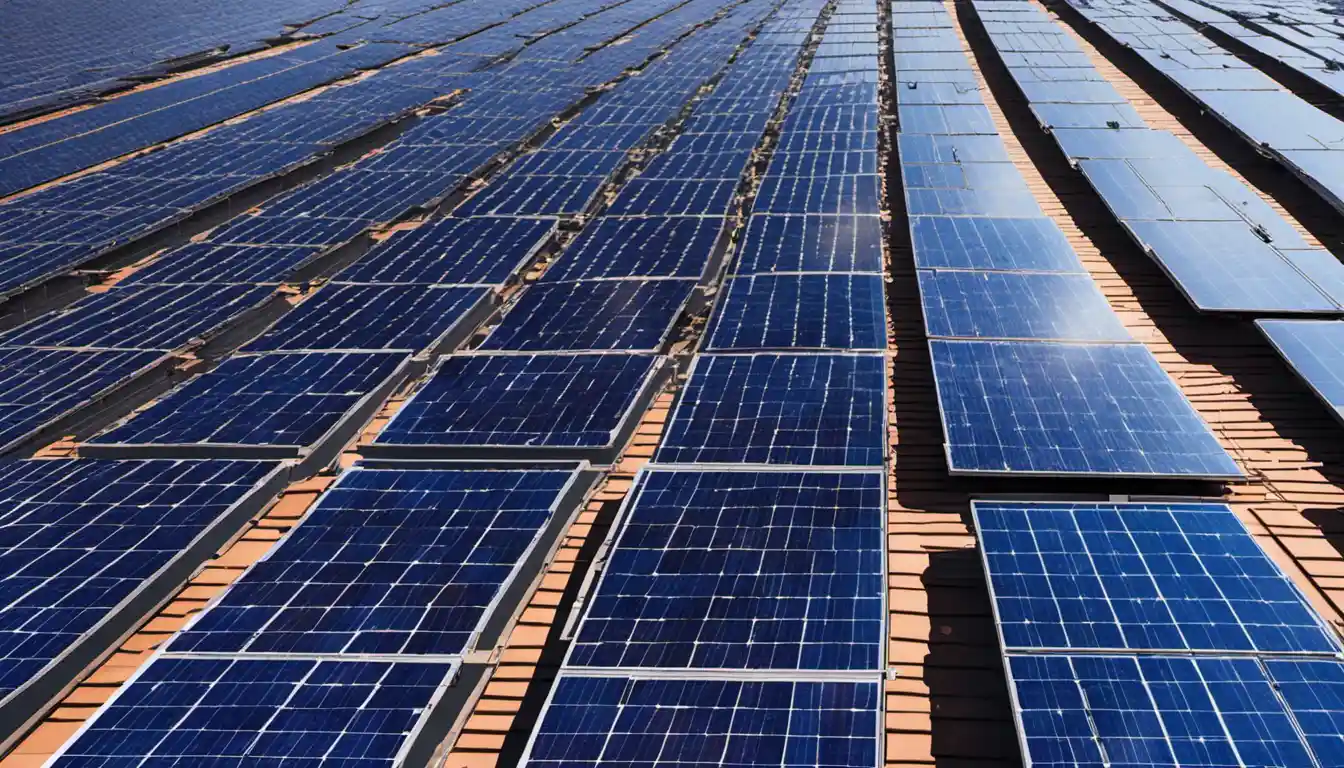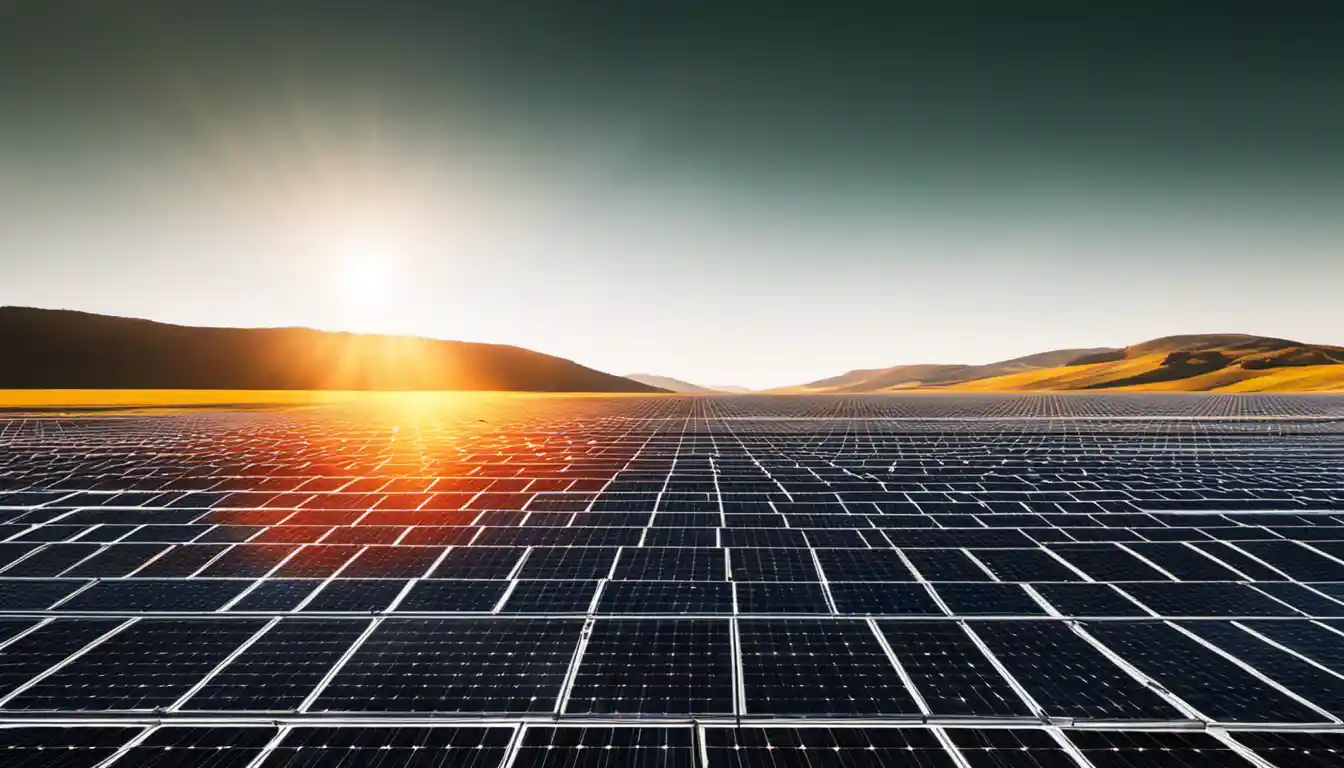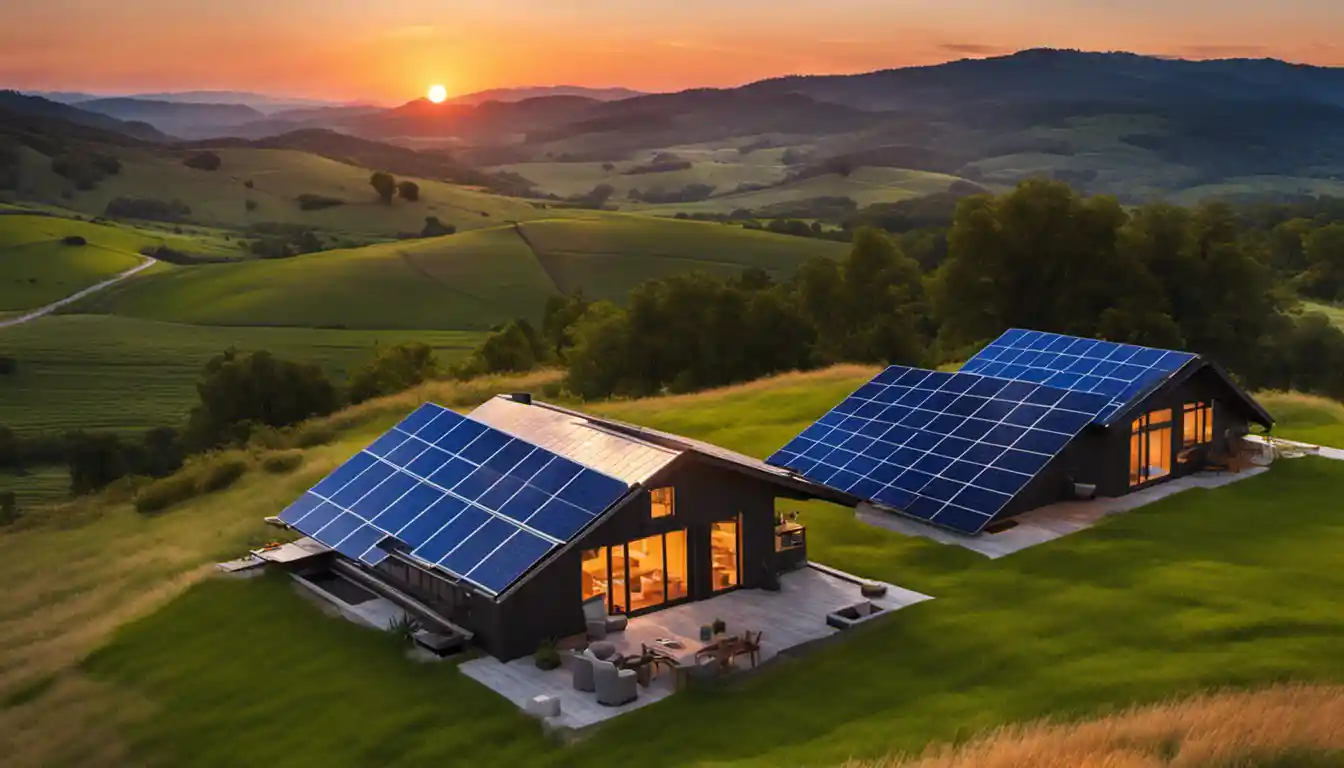Introduction: Understanding Solar Power Systems
Off-grid solar systems operate independently and are not connected to an electricity distribution grid, typically using a battery storage system to store energy. Hybrid solar systems, on the other hand, are connected to the grid but also have a battery storage capacity to store excess energy for later use. This allows the hybrid systems to also supply power during a grid outage, unlike grid-tied systems.
A Brief Overview of Solar Power Systems
Harnessing the power of the sun to generate electricity for homes, businesses, and even entire cities, solar power systems have emerged as a game-changing technology in the field of renewable energy. This technology transforms light into energy using solar panels (each panel consists of solar or photovoltaic cells), which you typically mount on rooftops or other sunny locations.
Importance of Solar Power Systems
Solar power systems not only contribute to reduced greenhouse gas emissions, but they also present a solution to energy insecurity and the rising cost of electricity. Moreover, solar power generation offers significant long-term cost savings, as sunlight – unlike fossil fuels – is a free and inexhaustible resource.
Defining Off-Grid and Hybrid Solar Systems
Before we delve into the specifics of the “off grid vs hybrid solar system” debate, it’s critical to understand what these two terms mean.
What is an Off-Grid Solar System?
As the name suggests, an off-grid solar system operates entirely independently of the mainstream electrical grid. An off-grid setup typically includes solar panels, a charge controller, batteries (for storing the generated power), and an inverter (to convert DC power from the batteries to AC power for use in household appliances).
What is a Hybrid Solar System?
A hybrid solar system is a midpoint between a completely on-grid and off-grid system. While it’s connected to the grid, it also possesses battery storage. The system stores surplus power generated by the solar panels in these batteries. In the event of a power outage, or when solar production is low (e.g., at nighttime or on cloudy days), the system can draw power from the batteries.
Understanding Off-Grid Solar Systems
Having defined what an off-grid solar system is, let’s delve deeper into understanding its intricacies.
Key Components of Off-Grid Solar Systems
Solar Panels and Their Role

At the heart of every off-grid solar system are the solar panels. Installed on rooftops, or generally, areas with maximum sun exposure, these panels consist of photovoltaic cells that convert sunlight into electricity.
The Utility of Batteries in Off-Grid Systems
Batteries are “the” essential component of off-grid solar systems. During the day, excess power generated by solar panels charges the batteries which then serve as the primary power source throughout the night or during periods of low sunlight (like during stormy or winter days).
Working Principle of Off-Grid Solar Systems
The working principle of off-grid solar energy systems is relatively straightforward. Firstly, solar panels absorb sunlight, triggering a reaction that generates direct current (DC) electricity. The charge controller ensures the batteries are not overcharged during this process. This DC electricity is then converted to alternating current (AC) by an inverter as most appliances run on AC power.
Benefits and Limitations of Off-Grid Solar Systems
While off-grid solar systems do offer a fair deal of independence and reliability, they also come with a few limitations.
Advantages of Choosing Off-Grid Solar Systems
The primary benefit of off-grid solar systems is the energy independence they provide. It implies there’s no need to rely on the grid for electricity. For properties in remote areas where grid connection is expensive or impossible, off-grid systems are an ideal solution.
Potential Drawbacks of Off-Grid Solar Systems
Conversely, the limitations of off-grid solar systems could include higher upfront costs (mostly due to the necessary battery storage system) and complete reliance on stored power during times of low sunlight. These systems need to be well engineered to meet energy needs throughout the year, considering the seasonal variations in sunlight.
Understanding Hybrid Solar Systems
Let’s switch our focus to hybrid solar energy systems to better understand this side of the “off grid vs hybrid solar system” comparison.
Essential Components of Hybrid Solar Systems
Role of Solar Panels in Hybrid Systems

Just like in off-grid systems, solar panels are the primary component in hybrid systems. As usual, they capture sunlight and convert it into electricity.
Significance of Batteries and Grid Connection in Hybrid Systems
Battery storage and link to the grid make hybrid systems a sort of “best of both worlds” scenario. The stored energy can be used during the night or a power outage, while grid connectivity ensures a constant power supply even if you are out of stored energy.
Working Principle of Hybrid Solar Systems
During the day, generated solar power is used to cater to the current electricity demand, and excess energy is stored in the batteries. Electricity from the grid is used only once the battery storage is depleted. This means that on most days, homes with hybrid solar systems might not need to use grid electricity at all.
Pros and Cons of Hybrid Solar Systems
Like every other system, hybrid solar systems too come with their strengths and weaknesses.
Benefits of Opting for Hybrid Solar Systems
Hybrid systems provide greater energy security compared to solely on-grid systems by offering uninterrupted power even during grid outages. They also allow for energy independence, enabling you to use stored solar energy instead of drawing power from the grid.
Possible Limitations of Hybrid Solar Systems
The main drawback of a hybrid system is it’s more expensive than a simple on-grid system due to the extra cost of batteries. Moreover, if your area is prone to prolonged periods of low sunlight, you may need to depend on the grid more frequently.
Difference between Off-Grid and Hybrid Solar Systems
Let’s highlight the key “difference between off grid and hybrid solar system” in terms of their components, working mechanisms, and pros and cons.
Comparing the Components
While both systems include solar panels, charge controllers, and batteries, the distinguishing feature is the grid connectivity, which only hybrid systems have.
Comparing the Working Principles

Off-grid systems rely solely on solar power stored in batteries, whereas hybrid systems supplement this with grid power when necessary.
Comparing the Benefits and Limitations
While off-grid systems provide complete energy independence, they can be more vulnerable to variations in sunlight. Hybrid systems, on the other hand, offer a backup in the form of grid power, but their dependence on grid connectivity can become a hindrance, especially during prolonged grid outages.
Making the Right Choice: Off-Grid vs. Hybrid Solar System
Between off grid vs hybrid solar systems, the right choice ultimately depends on your particular needs and circumstances.
Considering Your Power Needs
If your energy needs are significant and consistent, a hybrid system with its grid backup may serve you better. However, for small to medium scale needs, especially in remote areas, an off-grid system might be more feasible.
Evaluating Your Geographic Location and Climate
The geographical location and climate significantly influence solar power generation. For sunny regions with minimal fluctuations in daylight hours, off-grid systems can work well. For regions with varied sunlight availability, hybrid solar systems offer a safer choice due to their grid connectivity.
Assessing Your Budget
If the budget isn’t a constraint, you could opt for a hybrid system with its multiple advantages. On a tighter budget, an off-grid solar system may be better, especially if the alternative involves expensive grid connections.
Understanding Local Regulations and Grid Electricity Prices
Local policies can influence the feasibility of both types of systems. Grid connection charges, feed-in tariffs, and other energy-related laws could tip the scale in favor of one system over the other. So, assess your local regulations thoroughly before deciding.
To further grasp the nitty-gritty of such considerations, you can continue exploring types of solar systems.
Conclusion: Paving the Way for a Sustainable Future with Solar Power
Whether you decide on an off-grid or a hybrid solar system, both options usher you towards a more self-reliant and sustainable lifestyle. While the journey of making the right choice can be fairly complex, the results make it worthwhile. With an in-depth understanding of your power needs, budget considerations, geographic location, and local regulations, you can make an informed decision — ensuring a future where you harness energy directly from the sun!



